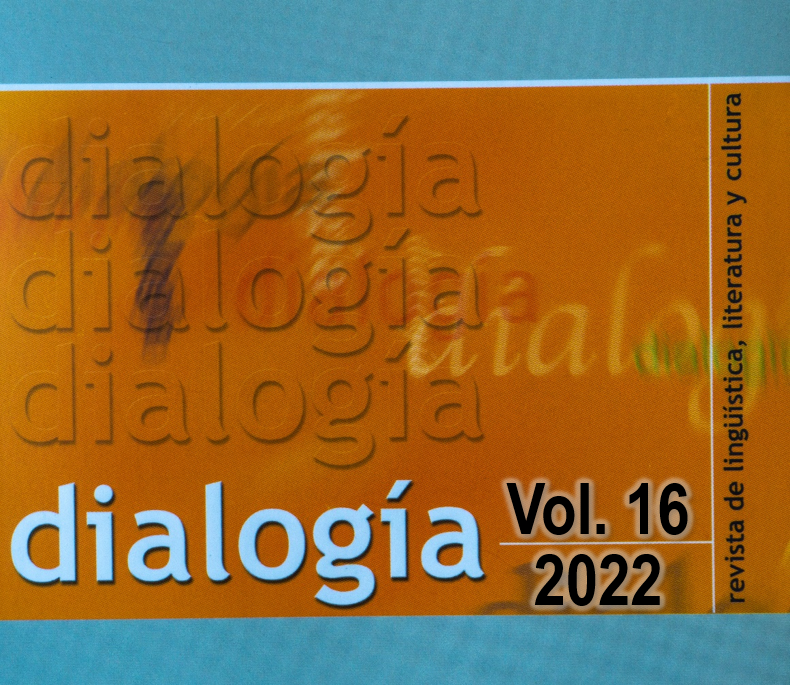The place of fiction in the cinematographic reproduction of reality
DOI:
https://doi.org/10.51440/dialogia.16.7Keywords:
Keywords: representation of reality; fiction; non-fiction; poetics; rhetoric.Abstract
In this work we are going to focus our attention on the audiovisual representation of reality. In the first part, we will discuss some of the criteria used to distinguish the fictional from the non-fictional genre in the cinema, from the problematization of the distinction between narrative and plot used by Bill Nichols and the idea of audiovisual rhetoric as deviation developed by Carl Plantinga. In addition, we will discuss the representation of historical fictions in Hollywood narrative cinema according to Robert Rosenstone. In the first two cases, the distinction reintroduces those problems that it intends to solve, since it presupposes knowledge of what "reality" is; in the latter, Rosenstone's conception of the narrative of Hollywood cinema informs about reality, although the author does not specify the way in which the narrative develops this capacity. In the second part of the paper, we will argue that in the representation of reality, narrative does not exclude argumentation, but rather, both are inseparable in all narrative fiction. We will hold that the narrative (mythos1) has two irreducible functions that allow it to communicate information, the plot (mythos2) and the argumentation (dianoia), which coordinate the powers of poetics and rhetoric. Finally, we will consider the role of the possible and the verisimilitude in narrative, cinematographic or verbal modelling of reality.
References
Albera, Francois (comp.) (1998), Los formalistas rusos y el cine, Barcelona, Paidós.
Bordwell, David (1996), La narrativa en el cine de no ficción, Barcelona, Paidós.
Bordwell, David (1999), El cine de Eisenstein, Barcelona, Paidós.
Carroll, Noel (1998), Philosophical Problems of Classical Film Theory, New Yersey, Princenton University Press.
Genette, Gérard (1976), «Boundaries of Narrative», New Literary History, 8 (1), pp. 1-13.
Lotman, Yuri (1979), Estética y Semiótica del Cine, Barcelona, Editorial Gustavo Gili.
Lotman, Yuri (1999), Cultura y explosión, Barcelona, Gedisa.
Nichols, Bill (1997), La representación de la realidad, Barcelona, Paidós.
Nichols, Bill (2013), Introducción al documental, Ciudad de México, Universidad Nacional Autónoma de México.
Plantinga, Carl (2014), Retórica y representación en el cine de no ficción, Ciudad de México, Universidad Nacional Autónoma de México.
Rosenstone, Robert (1997), El pasado en imágenes. El desafío del cine a nuestra idea de historia, Barcelona, Ariel.
Tillería Aqueveque, Leopoldo (2020) «Poética y verosimilitud en Aristóteles», Sincronía, núm. 77, pp. 388-403, 2020. Disponible en: https://www.redalyc.org/journal/5138/5 13862147019/html/#:~:text=El%20criterio%20de%20verosimilitud%20es,lo%20posible%20incre%C3%ADble%E2%80%9D%20(Arist (28/11/22)
Williams, Raymond (2014), Tragedia Moderna, Buenos Aires, Edhasa.
Películas
JFK. Dir. Oliver Stone. Le Studio Canal+, Regency Enterprises, Alcor Films, Ixtlan Corporation, 1991.
The Birth of a Nation. Dir. D. W. Griffith. David W. Griffith Corp., Epoch Producing Corporation, 1915.
Intolerance. Dir. D.W. Griffith, David W. Griffith Corp., Epoch Producing Corporation, 1916
La huelga. Dir. Sergei Eisenstein. Boris Mikhin, 1925.
El acorazado de Potemkin. Dir. Sergei Eisenstein. Yakov Bliokh, 1926.
Octubre. Dir. Sergei Eisenstein. Sovkino y Mosfilm, 1927.
Interestellar. Dir. Christopher Nolan. Paramount Pictures, Warner Bros, Pictures, Legendary Pictures, Syncopy Films, Lynda Obst Productions, 2014.
Dunkirk. Dir. Christopher Nolan. Syncopy Inc. 2017.
Downloads
Published
How to Cite
Issue
Section
License
Copyright (c) 2022 Omar Alejandro Murad

This work is licensed under a Creative Commons Attribution-NonCommercial 4.0 International License.
Todos los artículos aceptados y publicados en la revista Dialogía se distribuyen gratuitamente bajo los términos de la licencia Creative Commons Attribution 4.0 International (CC BY 4.0), con la finalidad de fomentar un mayor intercambio de conocimiento a nivel global.






